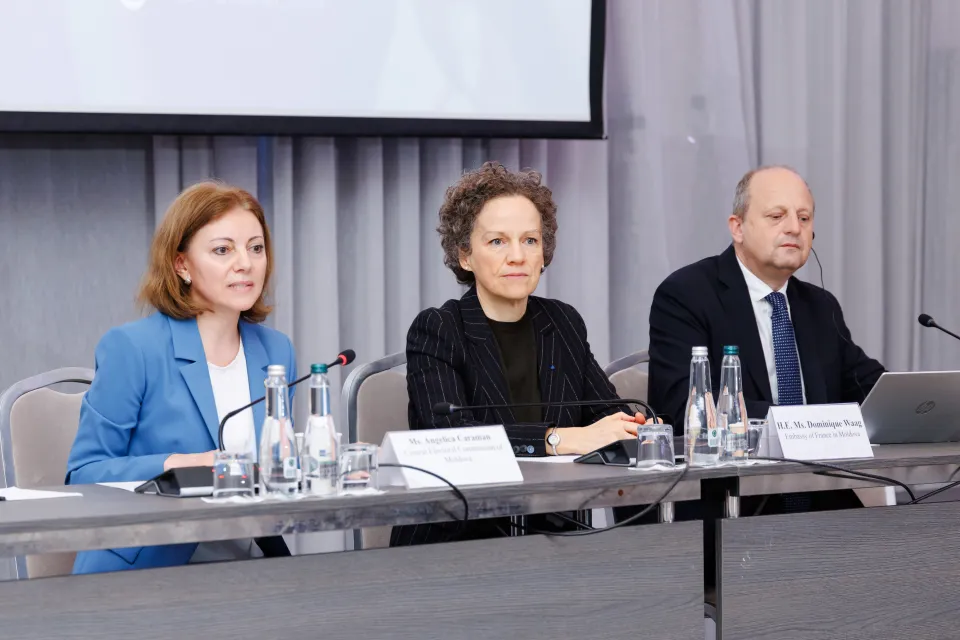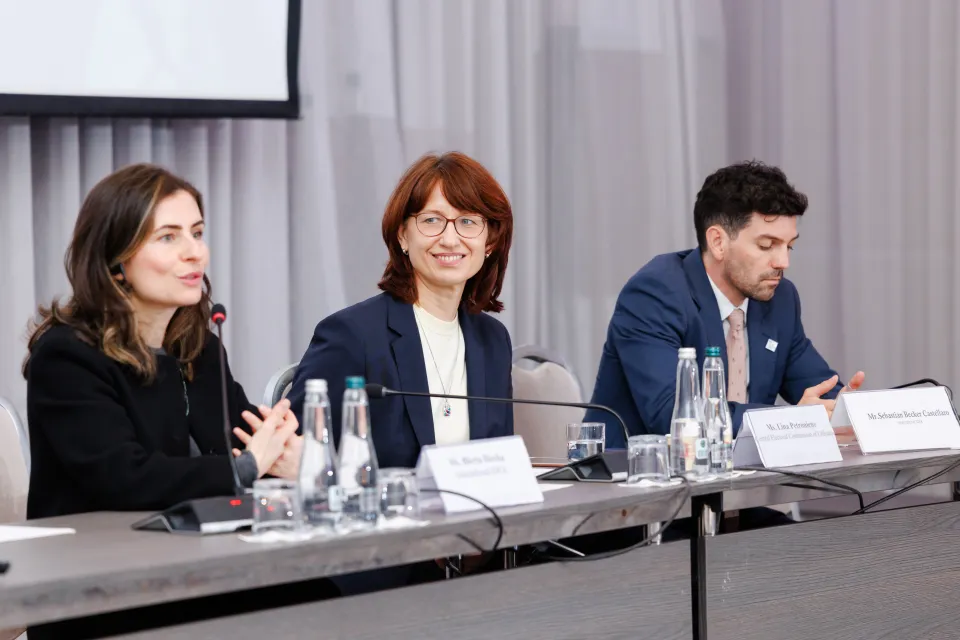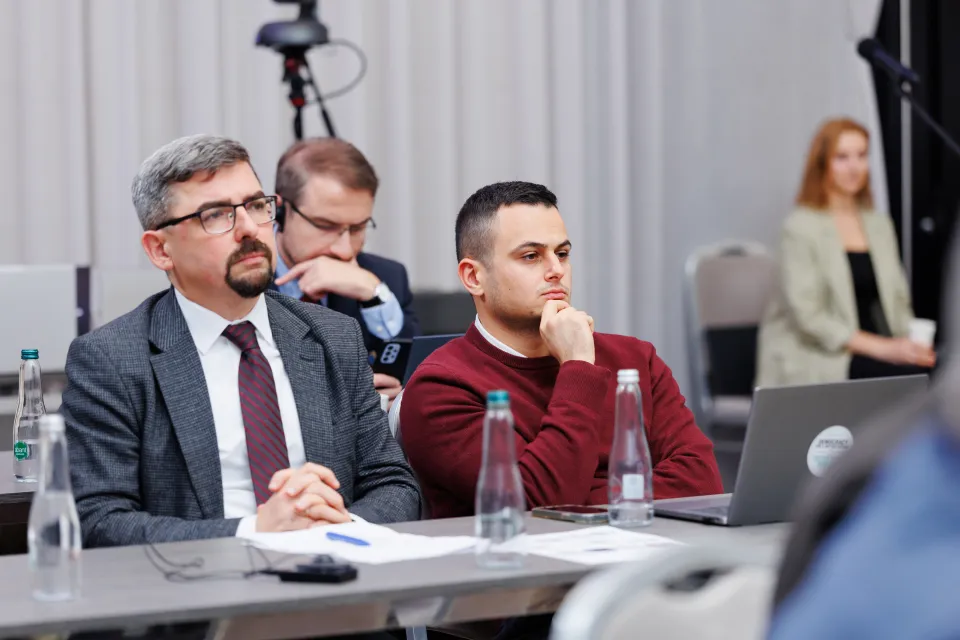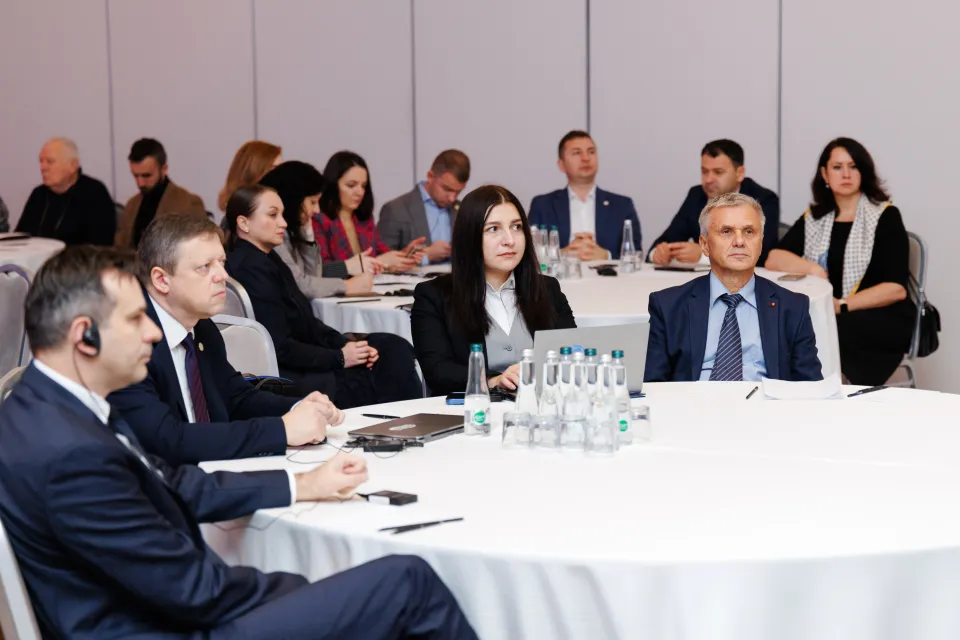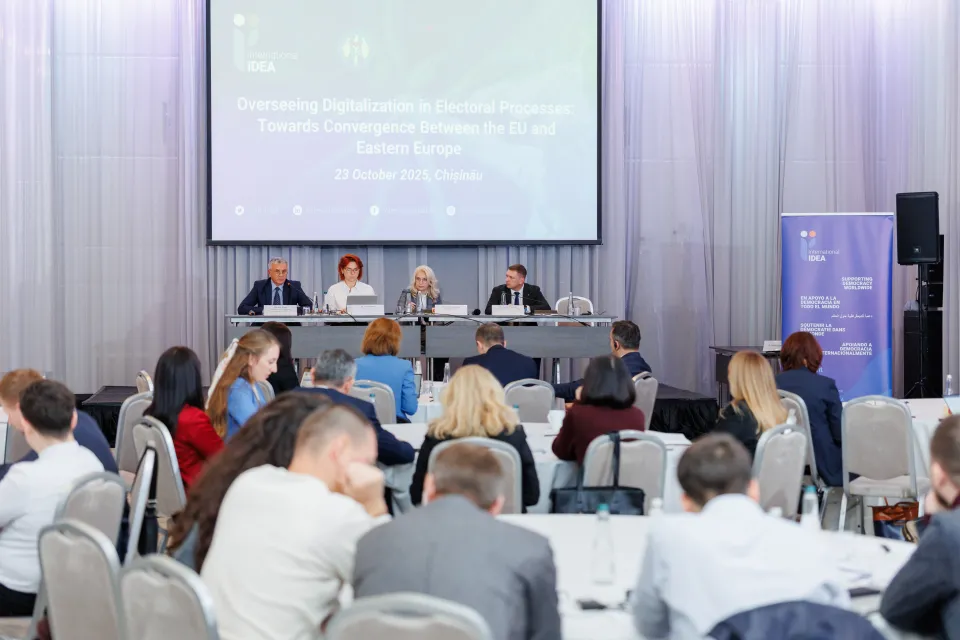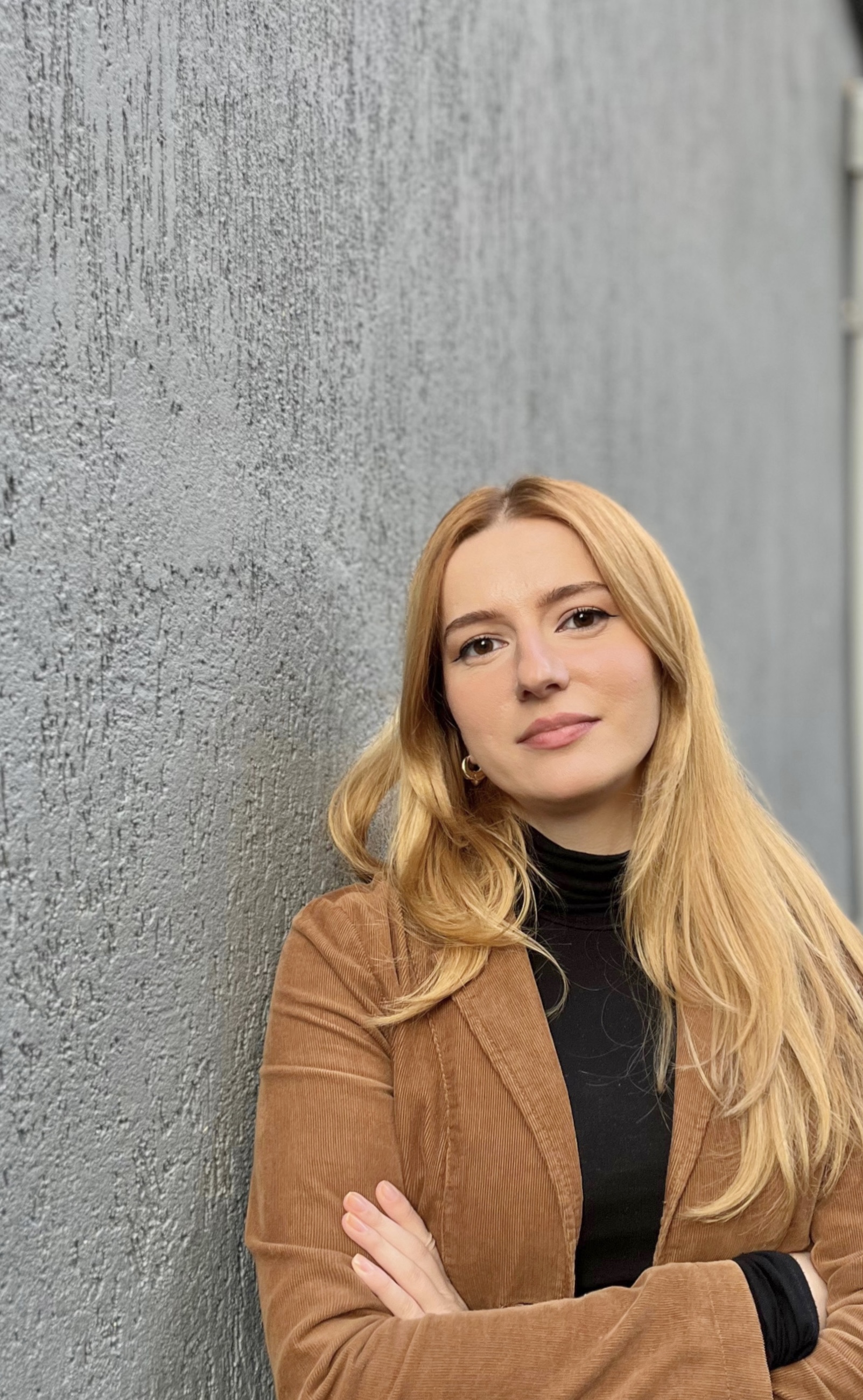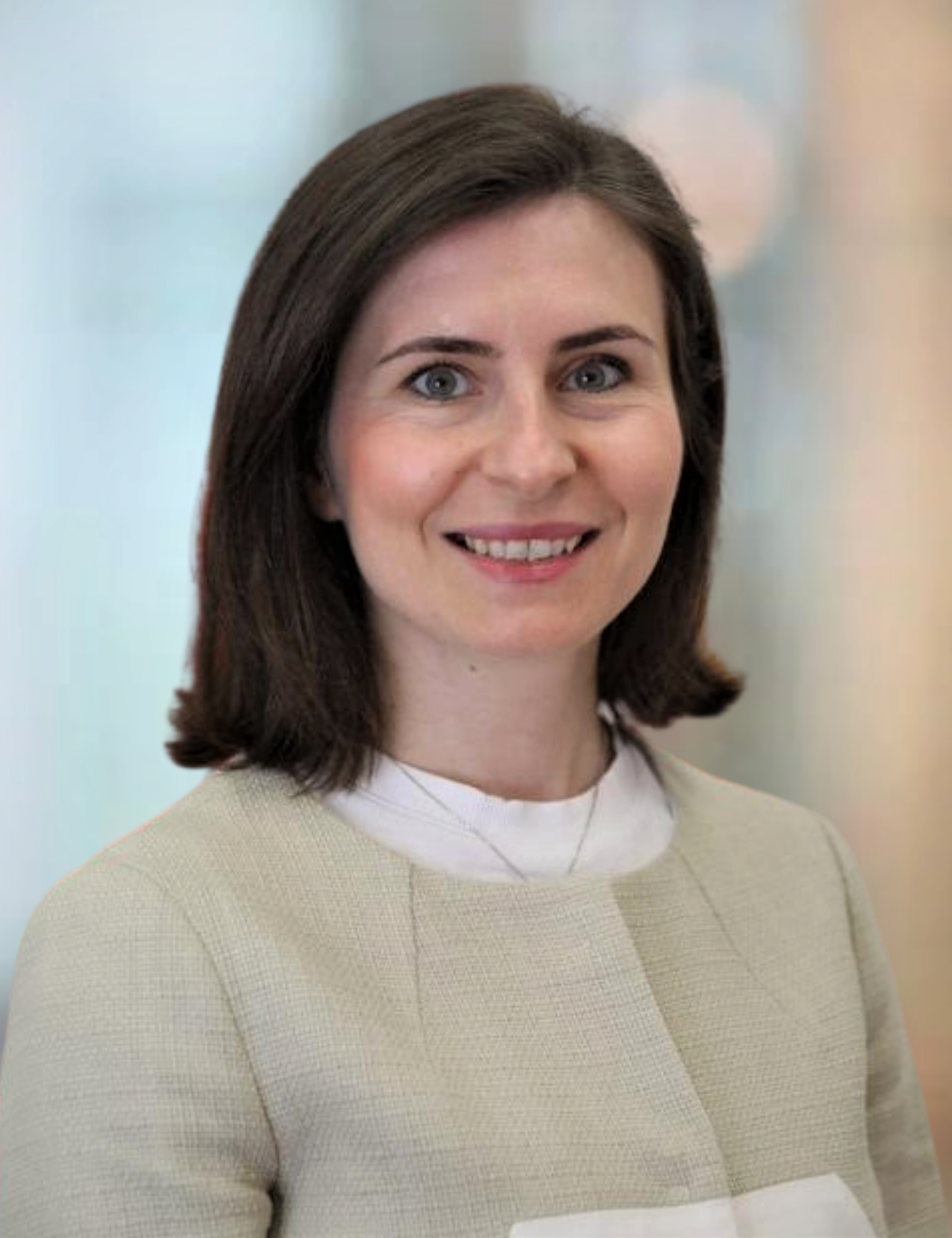Strengthening Electoral Integrity in the Digital Age: EU and Eastern Europe Dialogue in Chisinau
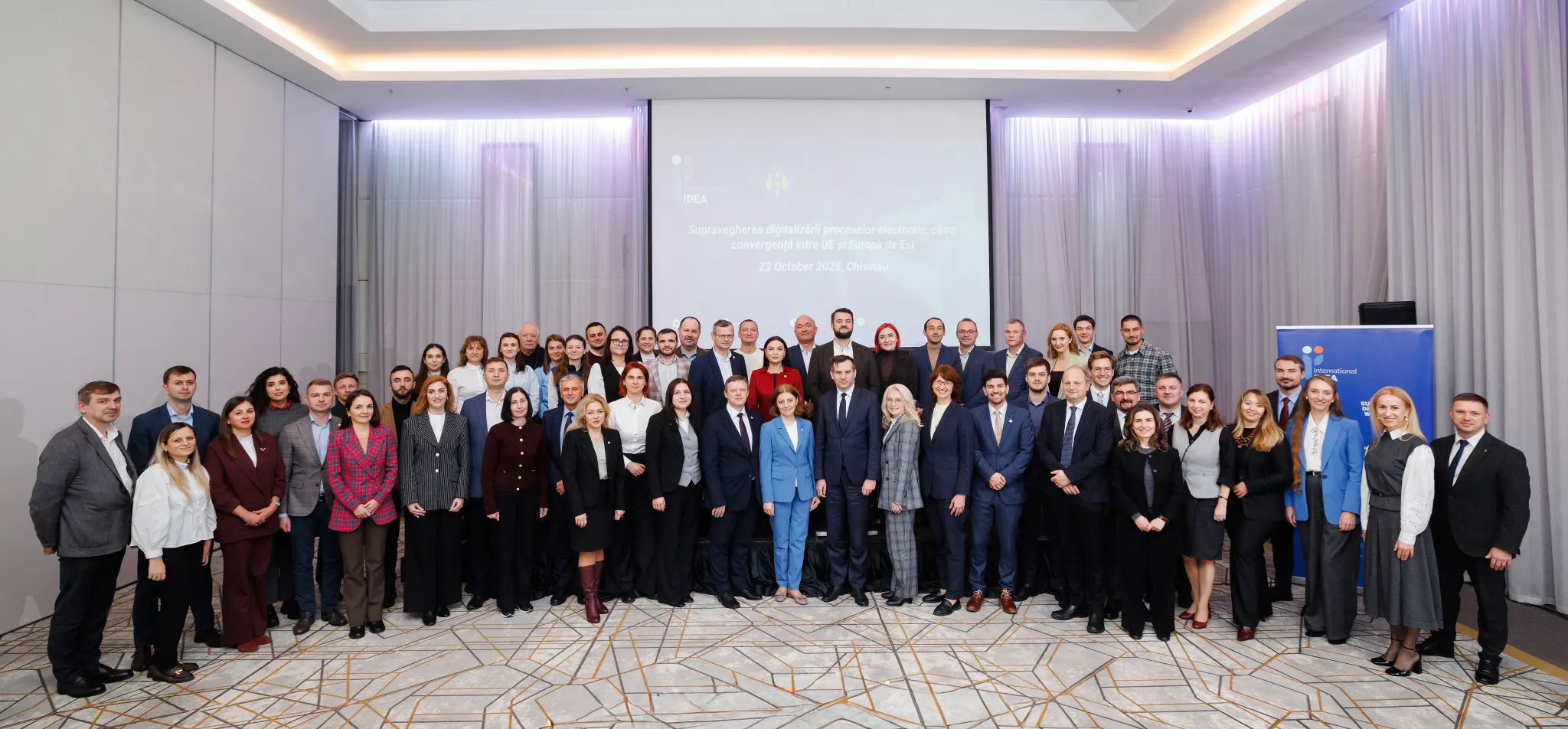
On 23 October 2025, electoral authorities, oversight bodies, civil society representatives, and digital democracy experts from the European Union and Eastern Europe gathered in Chisinau, Moldova. The regional conference, “Overseeing Digitalization in Electoral Processes: Towards Convergence Between the EU and Eastern Europe,” was hosted by International IDEA in partnership with the Central Electoral Commission of Moldova, and supported by Stiftung Mercator and the French MFA .
The event focused on how digital transformation is changing electoral processes across the region. It examined the EU’s comprehensive digital regulatory framework, which includes GDPR, the Digital Services Act (DSA), the AI Act, and the Transparency and Targeting of Political Advertising Act (TTPA). The conference explored how Eastern European countries, including Moldova, are working to align with these new standards to protect democratic integrity.
In opening remarks, Ms. Angelica Caraman, Chairperson of Moldova’s Central Electoral Commission, H.E. Ms. Dominique Waag, Ambassador of France to Moldova, and Mr. Peter Wolf, Principal Adviser on Elections and Digitalization at International IDEA, emphasized that both EU Member States and candidate countries face similar challenges. They also stressed that all show strong resilience in protecting their democratic processes.
The sessions revealed that while EU Member States have been integrating digital governance rules into their electoral systems, Eastern European countries face additional risks. These include geopolitical pressures, contested media environments, and rapid institutional changes. Moldova’s recent elections, the 2024 presidential vote and referendum, followed by the 2025 parliamentary election, highlighted these vulnerabilities. Challenges such as illicit campaign finance, cyber intrusions, and diaspora polling issues tested the strength of electoral institutions and the country's democratic resilience.
Experts discussed how the EU’s digital rulebook helps combat threats like AI-driven disinformation, opaque political advertising, and foreign interference. The conference also highlighted new mechanisms for cooperation. These include the European Cooperation Network on Elections (ECNE) and the upcoming European Democracy Shield initiative. Both aim to strengthen coordination, build capacity, and improve joint defence against digital threats.
The views of DG JUST, and case studies from Finland, Lithuania, Ukraine, Romania, and Moldova gave practical examples and paved the way ahead in this field. They showed how these countries manage online campaigning, protect personal data, and balance free speech with media freedom during elections.
A special focus was placed on the TTPA, which introduces stronger transparency rules for online political advertising starting. Participants shared how oversight bodies in Moldova and the region are adapting their structures and powers to meet these new rules. This includes managing foreign influence and monitoring third-party campaign financing.
Civil society representatives highlighted the importance of transparency and citizen engagement. They stressed that these elements are key to maintaining trust in elections during the digital transition.
The conference showed that the path toward convergence between the EU and Eastern Europe is not just technical. It requires political will, cooperation, and a shared commitment to democratic values.
Safeguarding elections in the digital era is a collective European effort.
Through dialogue and peer learning, Eastern European countries are better prepared to face new challenges and advance their European integration goals.
This event was part of the project Closing the Digital Gap on Elections in EU Accession, funded by Stiftung Mercator.
